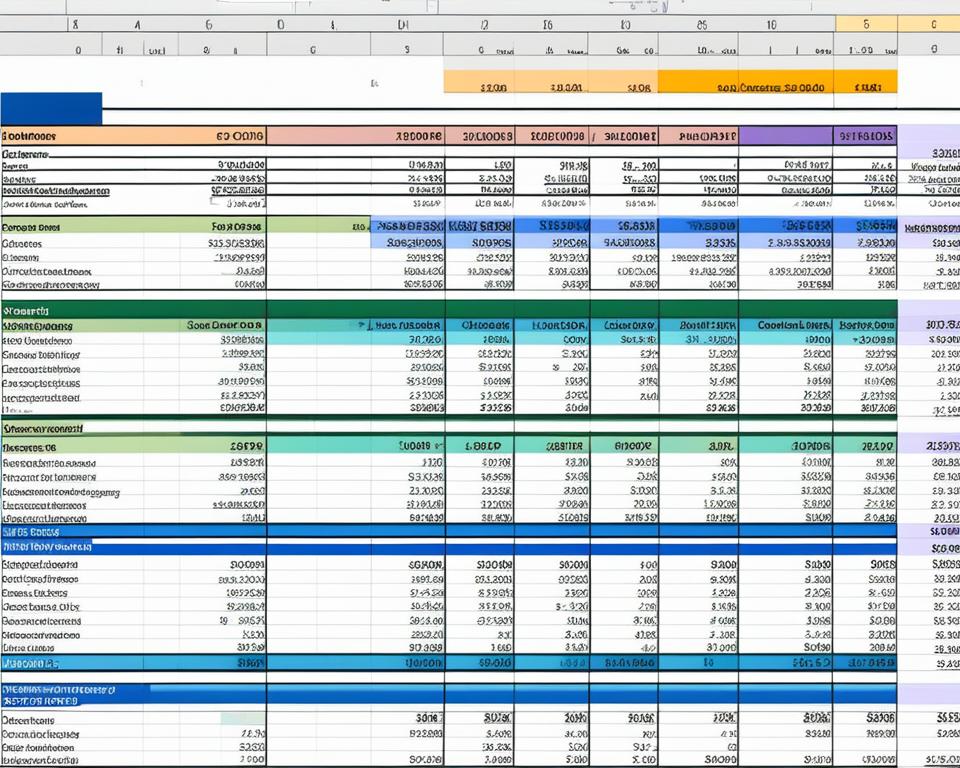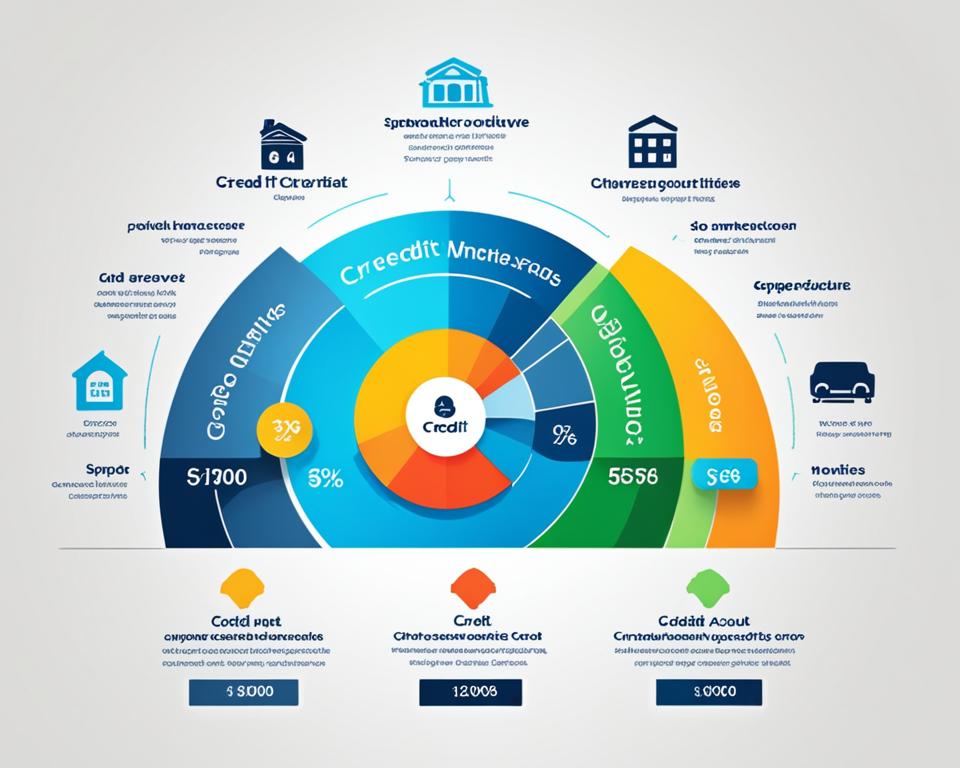Navigating the complexities of debt can be overwhelming, but with the right strategies, dealing with collections and negotiating settlements can become less intimidating and more manageable. For many, the road to financial freedom starts with mastery of settlement negotiation—a journey replete with challenges yet rich with opportunities for those willing to take control of their financial destiny.
Arming yourself with debt collection negotiation tips and a thorough understanding of your rights can lead to successful interactions with creditors. By engaging in informed dialogue and tactful negotiations, individuals can significantly reduce their financial burdens. However, caution must prevail: the pursuit of debt settlement requires a judicious assessment of risk versus reward, and the support of legal professionals may be vital for those treading these waters.
Key Takeaways
- The importance of mastering debt collection negotiation to gain financial freedom cannot be overstated.
- Debt settlement involves paying a reduced amount to satisfy a debt, but it comes with certain risks.
- A clear financial assessment paired with professional legal advice can mitigate the dangers of negotiating with creditors.
- Maintaining records and understanding the effects on credit scores and tax liabilities is crucial after a settlement.
- With the right approach to dealing with collections, accruing future debt can be prevented.
Understanding the Debt Settlement Landscape
When financial burdens weigh heavy, understanding how to negotiate debt settlement can become a beacon of hope for many. It’s a journey where each step has profound implications for your economic future, one that starts with a thorough comprehension of the debt settlement context. Here’s a critical exploration of this landscape, tailored to arm you with the knowledge to approach settling debts with confidence.
Defining Debt Settlement and Its Scope
At the forefront of financial recovery strategies lies the process of debt settlement. This approach involves negotiating with creditors to reach an understanding where you pay a smaller amount than what is originally owed. Commonly, unsecured debts such as credit card bills and medical expenses are eligible for these negotiations. Such settlements offer a chance for debtors to regain financial stability while crediting entities recover a portion of the funds lent.
Assessing the Role of Debt Settlement Companies
Debt settlement companies present themselves as intermediaries that can facilitate the negotiation process with creditors. These companies propose to manage the settlement on your behalf, aiming to reduce the debts more effectively than one might achieve independently. However, it is imperative to scrutinize such companies thoroughly, as they may pose risks including the incurrence of additional fees and heightened collection actions, which might inadvertently deteriorate your financial standing.
Recognizing the Risks and Impacts on Credit Scores
Understanding the potential risks associated with debt settlement is critical, particularly when it comes to your credit scores. Engaging in settlement can lead to a dip in your credit ratings due to missed payments, compounded if the debt is reported as ‘settled’ rather than ‘paid in full’. These credit impacts echo long after the debt is settled, hence a balanced view of immediate financial relief against long-term credit health is vital when considering a settlement path.
| Debt Type | Eligible for Settlement | Typical Reduction Percentage | Impact on Credit Score |
|---|---|---|---|
| Credit Card Debt | Yes | 20-50% | Negative, Short to Medium-term |
| Personal Loans | Varies | 10-60% | Negative, Short to Medium-term |
| Medical Bills | Often | 20-60% | Negative, Short to Medium-term |
| Student Loans | Rarely | N/A | Varies |
The insight into how the debt settlement arena unfolds highlights the significance of informed decision-making. Whether it’s navigating the services of debt settlement companies or acknowledging the downsides concerning credit scores, the knowledge you garner here equips you with the resolve to negotiate debt settlement adeptly and stride towards a stable financial future.
Dealing with Collections and Negotiating Settlements
When financial burdens become overwhelming, effective strategies for dealing with collections and negotiating settlements can provide welcome relief. Understanding your financial position and communicating clearly with creditors are foundations for successful negotiation. Knowing these debt collection negotiation tips and employing strategic collection agency negotiation strategies may lead to significantly reduced debt obligations.
It’s essential to approach collections with transparency about your ability to repay. Present your situation honestly, highlight your hardship, and remain forthright about your financial capabilities. By doing so, you create a conducive environment for negotiation, potentially leading to discounted payoffs on your outstanding balances.
- Start by analyzing your total debt versus your income.
- Know the exact amounts you owe and to whom.
- Develop a clear communication plan to approach creditors.
- Consider all negotiations’ impact on your credit score.
- Prepare to offer a realistic lump sum or payment arrangement.
- Always aim for a written agreement to formalize any settlement.
A successful settlement could reduce your total debt by as much as 50%, which exemplifies the power of negotiation in transforming one’s financial situation. Yet, it’s crucial to understand the potential risks involved. Missing payments to accumulate a lump sum for negotiations might affect credit scores, whilst settled debts can influence future borrowing opportunities.
By following these guidelines and advocating for your best interests, you are better equipped to navigate the challenges of debt collection and advocate for favorable settlements that pave the way to financial recovery.
Preparation: The First Step in Settlement Negotiation

The journey to effective debt resolution begins with preparatory groundwork, and this process is intrinsic to negotiating payment arrangements with collection agencies. Charting a course through the tumultuous waters of debt settlement necessitates a clear-headed and strategic approach, which is only possible through preparation.
Evaluating Your Financial Position
Before you begin to negotiate, you need to analyze your financial landscape. Understand the total amount of debt owed, monthly income, expenditure, and evaluate any assets that might influence negotiations. Crafting a financial snapshot affords a realistic depiction of what you can commit to when negotiating payment arrangements with collection agencies. This financial audit is the anchor of your negotiation strategy; it defines the limits and possibilities of your payment terms.
Developing a Negotiation Strategy
With your financial situation clearly mapped out, the next step is to develop a pragmatic negotiation strategy. Prioritize addressing unsecured debts, as these are typically more amenable to settlement. Constitute a plan that accounts for monthly payment potential, targeting debts that carry the highest interest rates or those from creditors more likely to agree to favorable terms. This approach will not only streamline the negotiation process but also give you a bargaining edge. Moreover, being informed about credit reporting procedures and the tax implications of settled debt can heavily influence which negotiation tactics will be most successful.
| Debt Type | Total Owed | Monthly Income | Non-Essential Expenses |
|---|---|---|---|
| Credit Cards | $15,000 | $3,000 | $200 |
| Medical Bills | $5,000 | $3,000 | $150 |
| Personal Loans | $10,000 | $3,000 | $100 |
| Other Unsecured Debt | $8,000 | $3,000 | $50 |
Armed with these insights, you’re better positioned to step into negotiations with confidence and clarity, paving the way to a potentially more secure financial future.
Effective Communication with Creditors
When it comes to negotiating payment arrangements with collection agencies, clear and persuasive communication is paramount. Conveying financial hardships transparently and proposing viable settlement options are central to the negotiation process. Halting usage of credit cards aimed for settlement is recommended to show creditors the earnestness of the situation, potentially making them more open to accepting a reduced settlement offer.
Success in securing agreeable settlement terms often depends on how early and articulately a debtor communicates their plight. The dialogue should not only reflect the debtor’s current financial limits but also convey a commitment to fulfilling their obligations within those constraints.
Paying off debt requires not just the means but also the will and discipline to see it through. Effective negotiation is far more than a financial transaction; it’s a communication skill that can lead to significant financial relief.
A major part of this negotiation involves not only the amounts but also the terms of the repayment. Offering a lump sum payment might be the best approach in some cases, while in others, a structured payment plan could be more feasible. Establishing these terms early on and ensuring they are documented in written agreements that creditors sign off on is key for a binding and legally enforceable settlement.
- Reflect genuine financial capacity when proposing settlements.
- Maintain honesty and clarity throughout communications.
- Propose a settlement early in the negotiation process.
- Document and secure written agreements from creditors.
All interactions with creditors or collection agencies should prioritize the aim to reach a settlement that leaves both parties satisfied and clear of any ambiguities—ensuring a solid foundation for rebuilding financial stability.
The Art of Negotiating Debt Settlements
Embarking on the path to negotiate debt settlement starts with preparation and an understanding of effective communication tactics. It is a nuanced exchange where both parties can achieve a mutually acceptable resolution. Mastering these initial phases can set the tone for successful negotiations, potentially leading to positive outcomes that benefit both creditor and debtor.
Starting the Negotiation: Initial Contact Techniques
Launching the negotiation process with your creditor or a collection agency begins with the first conversation, a pivotal moment in the journey towards financial relief. This initial interaction sets the stage for future discussions. When you negotiate payment arrangements with collection agencies, it’s crucial to establish from the outset that despite your current financial challenges, you are committed to finding a fair solution. Openness about the inability to pay the full amount, coupled with a clear presentation of your fiscal limits, creates a foundation of honesty that can facilitate more cooperative negotiations.
How to Present a Settlement Offer
Once you have initiated contact and articulated your willingness to amicably resolve the debt, the next step in how to negotiate debt settlement is to put forward your initial offer. Financial experts often recommend starting by proposing a sum that is 25%-30% of the total outstanding debt. This provides room for the creditors to make their counter-offers, thus beginning the negotiation process. Although you may be prepared to pay more, begin with a conservative figure that allows for flexibility in discussions, and always keep in mind your ultimate financial limits to ensure the final agreement is within your means. As the negotiation unfolds, patience and a clear understanding of each other’s perspectives can lead to a settlement that is financially viable for you and acceptable to your creditor.
With these recommended approaches in mind, you’re well-prepared to navigate the complexities of debt settlement negotiations, positioning yourself for a more favorable financial future.
Utilizing Professional Debt Settlement Services
Confronting debt head-on can be a formidable task for many individuals. In such cases, enlisting the help of professional debt relief companies can be instrumental in forging a pathway out of debt. These specialized services employ experienced negotiators with the expertise to handle creditor communications and haggle over outstanding debts on your behalf. Often, they employ effective debt settlement negotiation tips that may not be common knowledge to the average debtor, potentially slicing through the red tape to reach a negotiated settlement more efficiently.

However, debtors must proceed with caution as these services are not without costs. Fees can slice into savings, particularly when they are assessed as a percentage of the debt’s original amount or the final amount saved through negotiations. It’s a delicate balance—weighing the expense of the service against the potential debt reduction achieved.
When considering professional debt settlement services, it’s essential to conduct comprehensive research. This thorough vetting process helps in discerning reputable companies from those with malicious intent. It’s recommended to compare the track record, fees, and success stories of multiple debt relief companies, ensuring you land on an option that not only alleviates your debt burden but does so with transparency and integrity.
| Service Criteria | Questions to Consider | Implications |
|---|---|---|
| Reputation | Has the company resolved debts successfully for others? | Indicates reliability and effectiveness of services |
| Fees | Is the fee structure clear and justified? | Affects the overall savings from the debt settlement |
| Negotiation approach | What strategies does the company employ? | Reflects the potential to reduce debt amounts |
| Client Support | How does the company support its clients throughout the process? | Enhances the customer experience and sense of security |
The landscape of debt settlement is fraught with companies displaying a mix of genuine aid and deceptive practices. Among your greatest assets is knowledge—insight into the operative mechanisms of the debt relief companies can shield you from potential scams and ensure that the challenging process of debt settlement is as smooth and advantageous as possible.
Legal Framework: Know Your Rights Under the FDCPA
In the financial world, understanding your consumer rights presents a formidable defense against unfair collection practices. The Fair Debt Collection Practices Act (FDCPA) is a vital piece of legislation that gives power back to consumers, ensuring fair play in debt collection and offering peace of mind during the often stressful process of negotiating settlements.
The Impact of Consumer Protection Laws
Consumer protection laws have transformative power, reshaping the landscape of debt settlement and collection. The FDCPA stands as a consumer’s shield, protecting from the onslaught of creditor tactics that may otherwise go unchecked. By outlining strict guidelines for debt collectors, these laws prevent the use of abusive, deceptive, and unfair practices—such as incessant calling or the threat of legal action that is not forthcoming. Knowledge of these regulations affords debtors the confidence to engage in settlement conversations without fear of harassment or misrepresentation.
Navigating Through Creditors’ Tactics
With the backing of the FDCPA, debtors are better equipped to navigate through creditor tactics that may impinge upon their consumer rights. Whether facing demands for unjustified payments or contending with unwarranted threats, individuals can draw upon the legal framework of the FDCPA to stand their ground. This statute not only outlines consumer rights but also prescribes penalties for collectors who step beyond legal boundaries, providing a clear route for recourse should the need arise.
Debtors must remember that understanding and utilizing these rights can dramatically affect the outcome of debt settlements, potentially leading to more favorable terms and a restoration of financial equilibrium.
| Consumer Rights Under FDCPA | Description | Implication for Debtors |
|---|---|---|
| Protection from Harassment | Collectors cannot harass, oppress, or abuse you. | Debtors can negotiate without fear of intimidation. |
| Right to Information | Debtors must be provided with information about the debt. | Facilitates informed decision-making. |
| Dispute Verification | Debtors can dispute the debt and request verification. | Ensures that negotiations are based on verified debts. |
| Limitations on Communication | Collectors have restricted times and methods of contacting you. | Allows debtors to prepare for negotiations strategically. |
| Prohibition of Misrepresentation | Collectors cannot use deception to collect a debt. | Prevents debtors from being misled during settlements. |
The Tax Implications of Debt Forgiveness
Amidst the relief that comes with successfully negotiating a reduced settlement on your debt, it’s important to remember that such debt forgiveness may carry significant tax implications. The IRS generally considers any forgiven portion of your debt as taxable income. This means that if a creditor agrees to accept less than what you initially owed, the amount forgiven could translate into an obligation to pay taxes.
For instance, if you initially owe $20,000 in credit card debt and negotiate a settlement to pay only $10,000, the remaining $10,000 could be seen by the IRS as income. Depending on your tax bracket, this could mean a sizeable additional amount owed come tax season. Therefore, it’s critical to factor in these tax implications when calculating the true cost of your debt forgiveness.
Seeking the advice of a tax professional is highly recommended in the face of such a scenario. They can provide personalized guidance on how to report forgiven debt on your tax return and prepare for any resulting tax liability. Furthermore, certain insolvency exemptions could apply, potentially reducing the tax burden. Here is a brief breakdown of circumstances under which you may not have to pay taxes on forgiven debt:
- If the debt was discharged in bankruptcy.
- When the debt is forgiven when you are insolvent (your total debts exceed the fair market value of your total assets).
- Certain qualified principal residence indebtedness might be exempt under the Mortgage Forgiveness Debt Relief Act or other laws.
Overall, comprehending the potential tax consequences of debt forgiveness can prevent unpleasant surprises and ensure that you make informed financial decisions.
| Type of Forgiven Debt | Potential Taxable Income Status | Possible Exemptions |
|---|---|---|
| Credit Card Debt | Taxable | Insolvency, Bankruptcy |
| Mortgage Forgiveness | Taxable | Qualified Principal Residence Indebtedness |
| Student Loan Forgiveness | Varies | Public Service Loan Forgiveness and others |
| Medial Debt Forgiveness | Taxable | Insolvency, Certain Hardship Exemptions |
With these insights, debtors can more accurately evaluate the short-term benefits of debt forgiveness against the long-term reality of potential tax liabilities, thus embracing a holistic approach to debt settlement.
Post-Settlement Best Practices
Once the arduous journey of debt settlement comes to a close, it marks the beginning of a critical phase—ensuring that the financial gains made are not only preserved but also form the foundation of a more stable monetary future. Adhering to best practices in post-settlement scenarios is imperative to uphold financial integrity and ward off potential future financial strife.

Maintaining Organized Financial Records
In the wake of a settlement, maintaining financial records with meticulous precision is not optional—it’s a necessity. The records act as tangible evidence of the financial understandings reached and serve as a reservoir of documentation to support future transactions or negotiations. The cohesive archiving of these documents will facilitate ease of access should they be required to substantiate claims or clarify past financial arrangements.
| Record Type | Importance | Keep Until | Best Storage Practices |
|---|---|---|---|
| Settlement Agreements | Crucial for verification | Indefinitely | Secure digital copies, keep original documents |
| Correspondence with Creditors | Useful for future reference | 7 years | Organize by date and creditor |
| Payment Receipts | Proof of fulfilled settlement | 7 years | Immediate digital scanning, physical copies in safe location |
Future Debt Management and Prevention
To ward off the specters of past financial hardships, robust debt management tactics need to be invoked and rigorously applied. The implementation of a well-structured budget, accumulation of an emergency fund, and nurturing of frugal habits construct a triad of defense against unanticipated financial shocks. It is through these preventative measures that financial soundness is cultivated, allowing individuals to confidently navigate future fiscal landscapes without succumbing to the pitfalls of past debt challenges.
- Create a monthly budget to monitor income and expenses.
- Focus on building an emergency fund to cover unforeseen expenses.
- Adopt a frugal lifestyle to minimize unnecessary expenditures.
- Utilize financial planning tools and apps for regular debt monitoring.
As daunting as the journey to settlement may have been, it pales in comparison to the vigilance required in post-settlement financial management. The steps taken in the aftermath are just as crucial as the negotiations preceding them, with the former setting the stage for a healthier financial trajectory.
Realistic Outcomes: What to Expect After Negotiating
Embarking on the journey of settling debts with creditors is often accompanied by a mixed bag of emotions and outcomes. Initially, there’s a palpable sigh of relief—negotiations have concluded, and there’s finally clarity regarding the financial path ahead. This relief is largely due to the agreement to repay a reduced amount, alleviating the immense pressure of the original debt load. However, as with any financial remediation, there are ramifications to consider, particularly regarding one’s credit health.
The repercussions on credit scores are notable and enduring, often casting a long shadow that can persist for up to seven years. A settlement casts a distinct narrative on a debtor’s credit report, marking their obligations as ‘settled’ rather than the more favorable ‘paid in full.’ Despite the immediate financial reprieve, this narrative can constrict future financing avenues, as potential lenders are typically less enthusiastic about a settlement history, aware that the debtor has not repaid their debts in full.
Here’s a glimpse into the typical timeline of debt settlement outcomes that might affect one’s credit standing:
- 0-6 months: Debt settlement negotiations commence, likely causing an incremental drop in credit score due to halted payments.
- 7-12 months: A settlement is reached, and credit reports reflect debts as ‘settled.’ The debtor’s credit score continues to show the impact.
- 1-3 years: Gradual improvements in credit score may begin as the debtor works to rebuild credit, assuming consistent financial behavior.
- 4-7 years: The settled status remains visible to creditors, though its impact on credit score diminishes over time if the debtor maintains positive financial habits.
In the context of these long-term implications, thorough financial planning becomes non-negotiable. Debtors must pivot towards practices that cater not only to their immediate financial healing but also to the longer-term recovery of their creditworthiness. This calls for a balanced assessment of one’s financial situation, recognizing that while settling debts with creditors may offer short-term relief, it is the prudent management of future finances that will fully restore their financial standing.
However, it’s crucial to underscore that for some debtors, negotiating settlements may still represent the most viable option. When weighed against the dire alternatives such as bankruptcy or ceaseless collection pursuits, the compromise on credit score is a more palatable trade-off and a strategic step towards financial recuperation. This pivotal decision must be tailored to individual financial contexts, and when aptly chosen, it can indeed be a gateway to eventual financial freedom.
Negotiating Settlements with Collection Agencies
Engaging in the process of **negotiating with collection agencies** can significantly alter one’s fiscal trajectory, transforming burdensome debts into more manageable obligations. It’s a nuanced dance, one where the right moves can lead to settling debts on terms that relieve financial pressure. Preparation, clear communications, and a shrewd understanding of legal rights all converge to empower individuals on the verge of this intricate negotiation ballet.
Before initiating discussions aimed at negotiating debt settlements, getting a clear picture of your financial landscape is paramount. Consider the following essentials before taking on the negotiation challenge:
-
- Gather precise details of the debts in question, knowing not just the principal amount but also any accruing interest, late fees, or penalties.
- Ascertain the identity of the original creditor and the transition of the debt to the collection agency—it’s crucial for understanding the full context of what’s owed.
-
- Prepare for dialogue by understanding your own budget and what you realistically can commit to paying, whether in a lump sum or through a structured payment plan.
A crucial stage in this financial parley is the initial offer; a credible starting point that demonstrates earnest intent can set the tone for productive negotiations. After the initial discussion, correspondences should be frequent and diligent until you reach a finalized compromise.
Remember, the agreement in principle is only part of the battle. Until you have the settlement terms in writing, the deal isn’t complete, and the negotiated peace with your finances isn’t yet secured.
After the settlement, the final vital step includes confirming that the arrangement is reported accurately to the credit bureaus. Incorrect reporting could unjustly continue to affect your credit score negatively. Proper reporting, reflecting the totality of your settlement, helps to ensure the agreement works in favor toward improving your financial standing over time.
Approaching negotiations informed, safeguarded by written agreements, and with due diligence in follow-up can carve a path to lighter financial burdens and positive credit rehabilitation in the aftermath of settling debts—all critical to regaining control of your financial destiny.
Debt Relief Companies: Allies or Adversaries?
In the intricate world of financial recovery, debt relief companies are often seen as beacons of aid for those bogged down by debt. Yet, distinguishing dependable allies from potential adversaries in this realm is key to success when evaluating debt settlement services. A smart evaluation can be the differentiator between finding beneficial support and falling into further fiscal strife.

Evaluating the Credibility of Debt Relief Services
When faced with multiple debt relief companies, the cornerstone of evaluation rests on assessing their credibility and legitimacy. Vigilant consumers should check with their state attorney general’s office for any registered complaints and inquire with their local consumer protection agency. In states where licensing is mandated, verification of a debt relief company’s license adds an additional layer of reassurance for consumers. This due diligence ensures that the parties involved possess a certain level of accountability and are capable of delivering promised services.
Understanding Fee Structures and Costs
Decoding the fee structures of debt relief companies is a crucial step in evaluating their services. Generally, these companies might charge a portion of the total debt amount or a slice from the amount saved after negotiations. Here lies an essential question for debtors to ponder: Do the potential savings from the services offered justify the cost? This evaluation doesn’t just have qualitative value, but quantitatively it could mean the difference between slipping further into debt or stepping confidently towards financial freedom. Transparency in cost breakdown and a clear understanding of what each dollar spent is yielding will help in deciding whether the company in question is indeed an ally in your journey towards debt relief or an adversary in disguise.
Rebuilding Credit Post-Settlement
After the settlement of debt, individuals are often left with the looming task of **rebuilding credit**, which is imperative to regaining financial health. This pivotal phase, known as post-settlement credit recovery, is one where strategic actions can revitalize one’s credit profile, thereby restoring financial freedom and credibility with future lenders.
The journey to recover credit reputation involves more than just meeting financial obligations; it requires a steadfast commitment to a set of principles designed to demonstrate responsible credit management over time. Below are steps that individuals can implement to expedite their credit rehabilitation:
-
- Ensure all credit accounts are in good standing and payment histories are pristine moving forward.
- Avoid the temptation of applying for multiple new credit lines; instead, focus on maintaining existing lines responsibly.
-
- Keep credit utilization low to signal to lenders a controlled use of available credit.
- Regularly review credit reports to track improvements and dispute any inaccuracies that could be hindering the recovery process.
It is equally important to acknowledge that credit rebuilding is a gradual yet achievable process, often necessitating patience and perseverance. Retrospectively, the decision to settle a debt—although impactful on one’s credit score—presents a unique opportunity to establish new, sound financial habits.
By exhibiting punctuality in payments, measured financial endeavours, and informed use of credit opportunities, not only does one’s credit score begin to heal, but a narrative of improved financial reliability is also crafted. In the subsequent chapter of one’s fiscal journey, these mindful practices form the keystone of sustained financial stability and act as a bulwark against the reoccurrence of adverse credit events.
In essence, post-settlement credit recovery is not an end, but rather, the commencement of a new, more financially enlightened epoch. As individuals navigate through the aftermath of debt settlement, the concerted effort made in re-establishing their credit standing is an investment in their financial future—one that promises broader economic opportunities and paves the way for enduring financial autonomy.
Collection Agency Negotiation Strategies for Success
Navigating debt settlement requires strategic planning and skilled communication. Mastering collection agency negotiation strategies can mark the difference between financial duress and viable solutions that pave the way to debt freedom. Adhering to proven debt settlement negotiation tips can enhance your prospects of reaching an amicable agreement with collection agencies. This section delves into the pivotal aspects of negotiating with collections, highlighting leverage points for success and cautioning against common pitfalls.
Identifying Leverage Points in Negotiations
Engaging in negotiations with a collection agency warrants the identification of specific leverage points that can create mutually beneficial outcomes. Financial hardship, for instance, is a compelling argument that can incline agencies towards accepting partial payment scenarios over receiving no payment at all. Emphasizing circumstances that limit your ability to pay helps to underscore the practicality of a settlement. Structured settlement offers backed by documentation of your financial situation solidify your position and can lead to favorable terms.
- Explaining your financial hardship in a convincing manner
- Presenting a realistic outline of your financial situation
- Demonstrating the impracticality of full debt repayment
- Offering a clear settlement that reflects your payment capability
Avoiding Common Negotiation Mistakes
Success in debt settlement is often undermined by common negotiation mistakes that debtors make. Lack of preparation, inadequate documentation, and a rushed acceptance of unfavorable terms can result in a less than optimal agreement. To ensure negotiations proceed smoothly and yield positive outcomes, it is critical to avoid these errors:
- Entering negotiations without full knowledge of the debt amount and your financial limits
- Failing to provide empirical evidence to support your financial hardship claim
- Quickly accepting the first offer without considering the long-term implications
Patiently presenting your case, with thorough documentation and a calm demeanor, fosters a constructive environment for debt settlement. By understanding the creditor’s perspective and remaining diligent, you can negotiate terms that alleviate the burden of debt while preserving your credit health.
Conclusion
Mastering settlement negotiation is a significant achievement on the journey to financial freedom. The strategies detailed throughout this guide illuminate the path for individuals ready to navigate the financial seas, highlighting the prowess needed to face collectors and negotiate settlements effectively. A successful negotiator understands the intricacies of the process, emphasizing preparation, adept communication, and a deep awareness of their legal rights.
Financial resilience post-settlement is achieved through vigilant practices: keeping impeccable records, following through on agreements, and initiating measures to avert future financial setbacks. Such discipline underscores the importance of maintaining stability and promoting robust financial health well after debts have been settled. Staying informed and exercising financial prudence becomes the foundation upon which lasting solvency is built.
Ultimately, the practical application of these negotiation skills empowers individuals to take control of their financial destinies. While there may be challenges along the way, with steadfast commitment and the right tools at their disposal, they can emerge from under the shadow of debt—stepping confidently into a realm where fiscal stability is not just a dream, but a reality. Embrace these principles, and financial freedom becomes more than an aspiration—it becomes an attainable milestone in one’s financial voyage.
FAQ
What exactly is debt settlement, and what types of debt does it cover?
Debt settlement is the process of negotiating with creditors to pay a reduced amount on outstanding debts, typically unsecured debts such as credit card bills and medical expenses.
How do debt settlement companies operate, and what are the potential risks?
Debt settlement companies work on your behalf to negotiate lower debts, but they may charge significant fees. Risks include additional fees, increased collection efforts, and negative impacts on your credit score.
What factors should be considered when dealing with collections and negotiating settlements?
It’s important to assess your financial situation, understand your debt amount, and communicate effectively with creditors. Knowing your rights under the FDCPA can also protect you from unfair practices.
How should one prepare before negotiating debt settlements?
Preparation involves evaluating your total debt, examining your income and assets, and understanding your monthly payment capability. Prioritization of debts and potential tax liabilities should also factor into your strategy.
What are some effective techniques for communicating with creditors?
Clearly state your financial difficulties, propose realistic settlement options, and, if possible, stop using credit cards that are part of the negotiation to show good faith in settling your debts.
Can you outline how to present a settlement offer to a creditor?
Begin with an offer that is less than you’re willing to pay, around 25%-30% of the owed balance, to allow room for negotiation. Be patient and ready for counter-offers.
Should I use professional debt settlement services?
Professional services can negotiate on your behalf, potentially leading to lower debt amounts. However, it’s essential to research and ensure the service is reputable to avoid scams and high fees.
How do consumer protection laws affect debt settlement negotiations?
Consumer protection laws like the FDCPA prevent abusive practices by collectors. Knowing these laws empowers you to negotiate confidently and avoid intimidation or harassment.
What are the tax implications of debt forgiveness?
Forgiven debts may be viewed as taxable income by the IRS. Therefore, it’s important to be aware of and prepare for any potential tax obligations resulting from the settled debt.
Why is maintaining organized financial records recommended after a settlement?
Keeping detailed records of all settlement documents ensures that you have proof of the agreement’s terms, which helps prevent disputes and maintains accurate reporting to credit bureaus.
What should I expect in terms of my credit after a debt settlement?
Expect your credit score to be affected, which may limit borrowing options. However, settling debts can also provide financial relief and a starting point to rebuild your credit.
What are some strategies for negotiating settlements with collection agencies?
Have a full understanding of your debt, propose a realistic settlement figure, and follow up diligently until you obtain a written agreement confirming the terms.
How do I evaluate the credibility of a debt relief company?
Check for complaints with the state attorney general and consumer protection agency, verify if the company is licensed, and thoroughly understand its fee structure.
How can I rebuild my credit after a debt settlement?
Focus on demonstrating consistent financial responsibility, making payments on time, and carefully managing your credit use to gradually improve your credit score.
What are some effective collection agency negotiation strategies?
Identify leverage points such as hardship and willingness to settle, and avoid mistakes like being under-prepared or hastily accepting unfavorable terms. Structure your settlement offers and be patient throughout negotiations.





